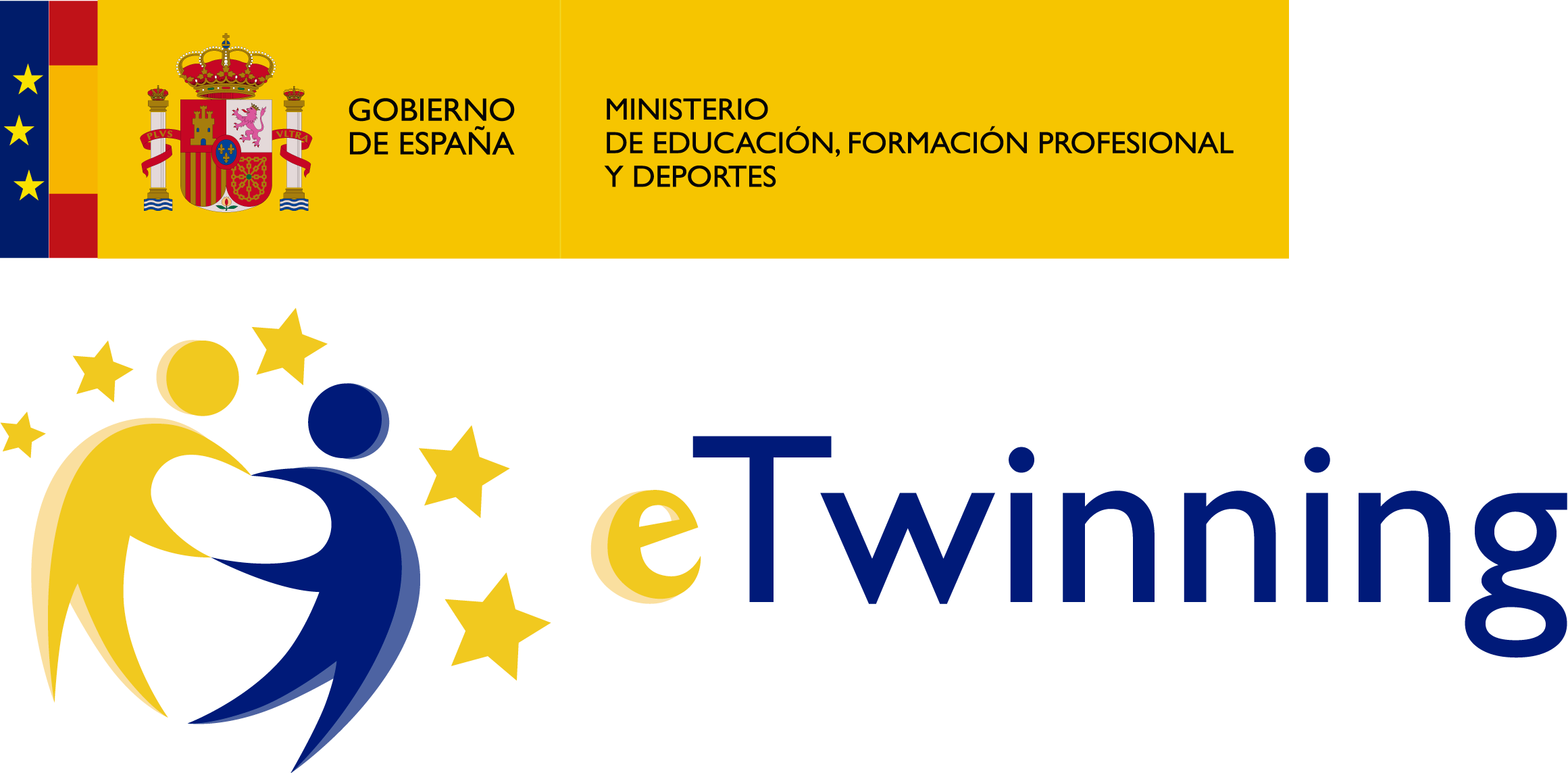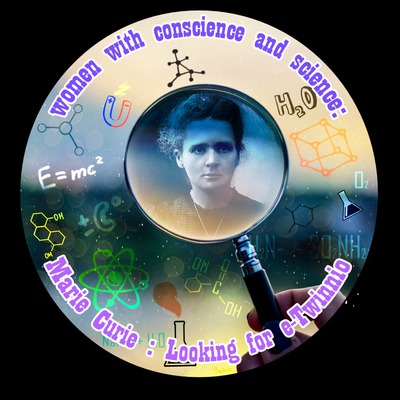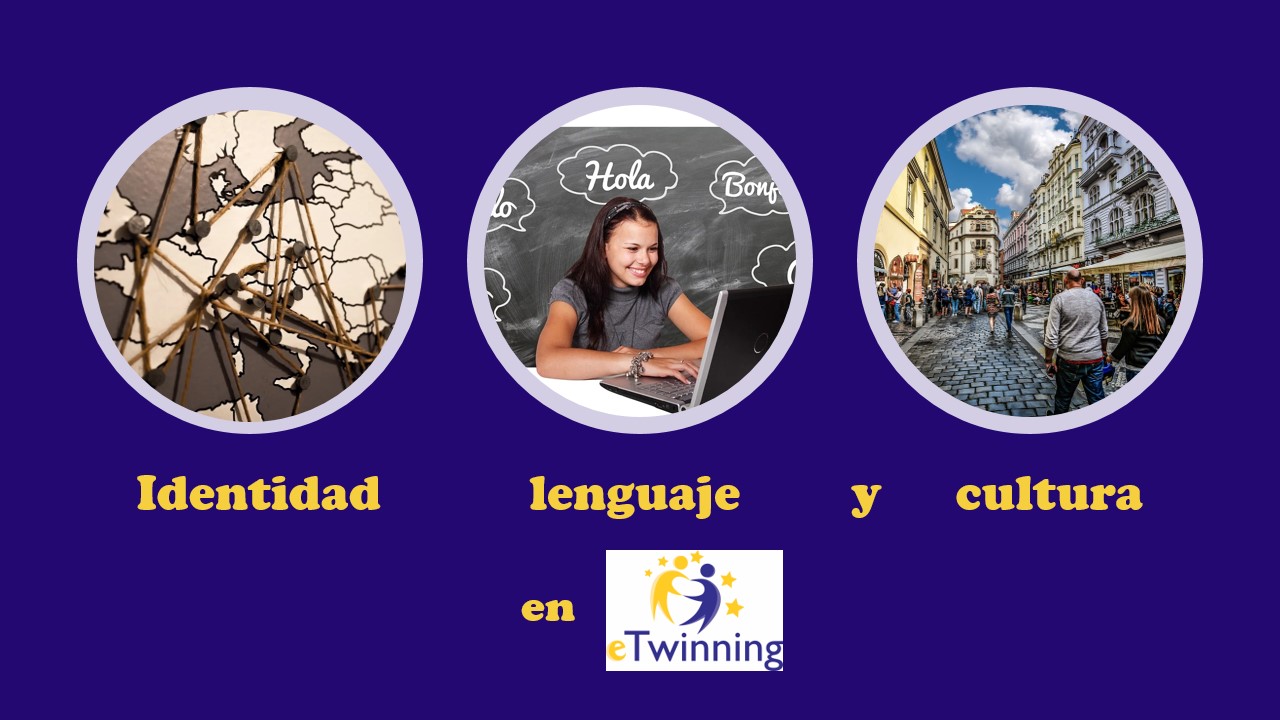Breaking down barriers and riding a bike through eTwinning. Experiences of 5th and 6th grade Primary Education students

We would like to present a final degree project from the Faculty of Education from Albacete; its author is Estefanía Nuñez Albiar, a Bachelor student, and Raquel Sánchez Ruiz is her tutor. The paper is an investigation that focuses on the pedagogical use of ICT in school in general and on the role of eTwinning and the use of its platform in particular. The paper explores the benefits of being involved in eTwinning as far as the students’ digital competence development. It also points out other benefits students gain from eTwinning in terms of language, teaching and culture.
Breaking down barriers and riding a bike through eTwinning: experiences of 5th and 6th grade Primary Education children
Key words: eTwinning, foreign languages, Information and Communication Technology, cultural awareness, digital society, Primary Education
Abstract
The goal of this final degree project is to study how foreign language teaching has evolved along the years and how it has been put into practice in the present information and knowledge society. The traditional teaching methods focused on isolated aspects of the language and virtually didn’t count on student involvement or interaction; it was a one-way teaching model in which the teacher played an authoritarian role and students were just passive receivers of information. However, the new teaching methodologies for foreign languages give the students the leading role of the teaching and learning process, foster critical and analytical thinking and promote collaboration and student involvement by means of tasks and projects that give students the chance to put what they learn into practice in real-life situations. Being faced with 21st century challenges allows them to acquire basic competences and at the same time to prepare for their future lives .
The present work focuses on the use of information and communication technologies in general and more specifically on the use of eTwinning, since these give the students the opportunities they need in order to develop their personalities and reach their full potential as human beings in the digital society they are growing up in. Today’s students are digital natives who coexist with new technologies not only in schools, but at home and everywhere in the world that surrounds them.
This project begins with an introduction and a justification that includes a definition of eTwinning and its benefits, details on how to become a member and how to get involved in a project, and on the use of ICT within the platform; also, it points out the limitations of the platform with a view to proposing improvement measures later on.
Next, the paper continues with the theoretical framework and the established objectives. The objectives are divided into two categories; one category refers to the objectives of this final degree project and the other one to the objectives of the eTwinning project. Next the methodology is explained. After the project itself and its phases are described, the paper focuses on the expected results with regards to the students and the teacher, and then comments on the conclusions. Last, the project includes a bibliography and Annexes.
This project puts emphasis on the linguistic, pedagogical, and cultural benefits of using eTwinning in the classroom and it relates them to values education. It highlights the value of using new technologies in today’s education, but, at the same, it brings attention to the risks they entail and gives guidelines and advice on how to use these technologies properly. At the same time, a literature review and a didactic proposal are used to analyze what the platform impacts are on the school community.
The proposal is based on the implementation of an eTwinning project in Primary Education for 5th and 6th grade students; the project not only addresses linguistic aspects, but it also promotes healthy habits in everyday life by means of a student-centered teaching methodology and by fostering an active involvement of students in society. The proposal is meant for two schools, one from Spain and one from Denmark; the main objective is for the students to build relationships using English to carry out tasks that focus on how to lead a healthy lifestyle. Moreover, the students would stimulate each other to ride their bikes and at the same time they would learn more about their cultures and improve their communication skills. The project is cross curricular and it involves the physical education teacher and the class tutors. The students would work in groups of 4 or 5 people so that they can help each other and learn by cooperating and collaborating through meaningful learning and discovery learning; some of the final products that they would do involve carrying out surveys, creating a blog, online presentations, posters, and leaflets. Student evaluation would be continuous and it would encompass all aspects: cognitive, social, and emotional; student would have the chance to assess themselves and assess their peers.
Students are expected to be highly motivated, to use the foreign language as a communication language, and to enjoy working in groups and assimilate the different topics. As for the teachers, they are expected to use new technologies in their teaching practice and to give the students the opportunities they need.
This investigation helps put emphasis on the role of new technologies in education and therefore on the use of eTwinning due to all the benefits it provides. Furthermore, it gives the students the opportunity to grow in every aspect of their lives not only thanks to the knowledge they acquire, but to the fact that they put into practice all the acquired information taking into account a real-life communication goal, which is a key element in the foreign language teaching and learning process.
Estefanía Núñez Albiar
Recommendations








Reglamento de protección de datos (información básica)
En cumplimiento de la normativa de protección de datos personales, le informamos de que sus datos serán incorporados al tratamiento denominado “eTwinning participación”, cuya finalidad es la participación en el proyecto de colaboración europeo eTwinning.
Puede usted ejercitar los derechos de acceso, rectificación, oposición, supresión (“derecho al olvido”), limitación de tratamiento y portabilidad y a no ser objeto de decisiones individuales automatizadas que sean de aplicación de acuerdo a la base jurídica del tratamiento. Podrá hacerlo en la sede electrónica del ministerio (http://www.educacionyfp.gob.es/servicios-al-ciudadano-mecd/catalogo/educacion/varios/proteccion-datos.html), presencialmente en las oficinas de registro o por correo postal.
Al rellenar y enviar este formulario usted concede su consentimiento inequívoco para el almacenamiento de sus datos en nuestros ficheros tal y como se especifica en nuestras normas de privacidad.
Normas de privacidad
NOMBRE DEL TRATAMIENTO
eTwinning participación.
FINALIDAD
Participación en el proyecto de colaboración europeo eTwinning.
RESPONSABLE
Dirección General de Evaluación y Cooperación Territorial del Ministerio de Educación y Formación Profesional
C/ Alcalá, 34; 28014-MADRID.
DELEGADO DE PROTECCIÓN DE DATOS
Subdirección General de Atención al Ciudadano, Documentación y Publicaciones.
c/ San Agustín 5, 28014-MADRID
dpd@educacion.gob.es
PLAZOS O CRITERIOS DE CONSERVACIÓN DE LOS DATOS
Sus datos se conservarán durante el tiempo necesario para la tramitación y respuesta de su solicitud. Además, será de aplicación lo dispuesto en la normativa de archivos y documentación.
DECISIONES AUTOMATIZADAS
No se realizará toma de decisiones individuales automatizadas basadas en la información que usted nos proporciona.
PLAZOS O CRITERIOS DE CONSERVACIÓN DE LOS DATOS
Sus datos se conservarán durante el tiempo necesario para la tramitación y respuesta de su solicitud. Además, será de aplicación lo dispuesto en la normativa de archivos y documentación.
LEGITIMACIÓN O BASE JURÍDICA DEL TRATAMIENTO
El tratamiento es necesario para el cumplimiento de una obligación legal aplicable al responsable del tratamiento, artículo 6.1e) del RGPD, Reglamento UE 2016/679, y en la Ley 8/2013, de 9 de diciembre, para la mejora de la calidad de la enseñanza.
DESTINATARIOS
Departamentos de Educación de las CC.AA que llevan proyectos europeos, para distintas gestiones, como la tramitación de permisos ausencia del centro, envío de información relevante, etc.
DERECHOS
Puede usted ejercitar los derechos de los artículos 15 al 22 del RGPD que sean de aplicación de acuerdo a la base jurídica del tratamiento. Podrá hacerlo en la sede electrónica del ministerio, presencialmente en las oficinas de registro o por correo postal.
AUTORIDAD DE CONTROL
La autoridad de control en materia de protección de datos personales es la Agencia Española de Protección de Datos (http://www.aepd.es).
CATEGORÍA DE DATOS PERSONALES
Los datos personales que se tratarán son los que figuran en el formulario que usted nos proporciona.